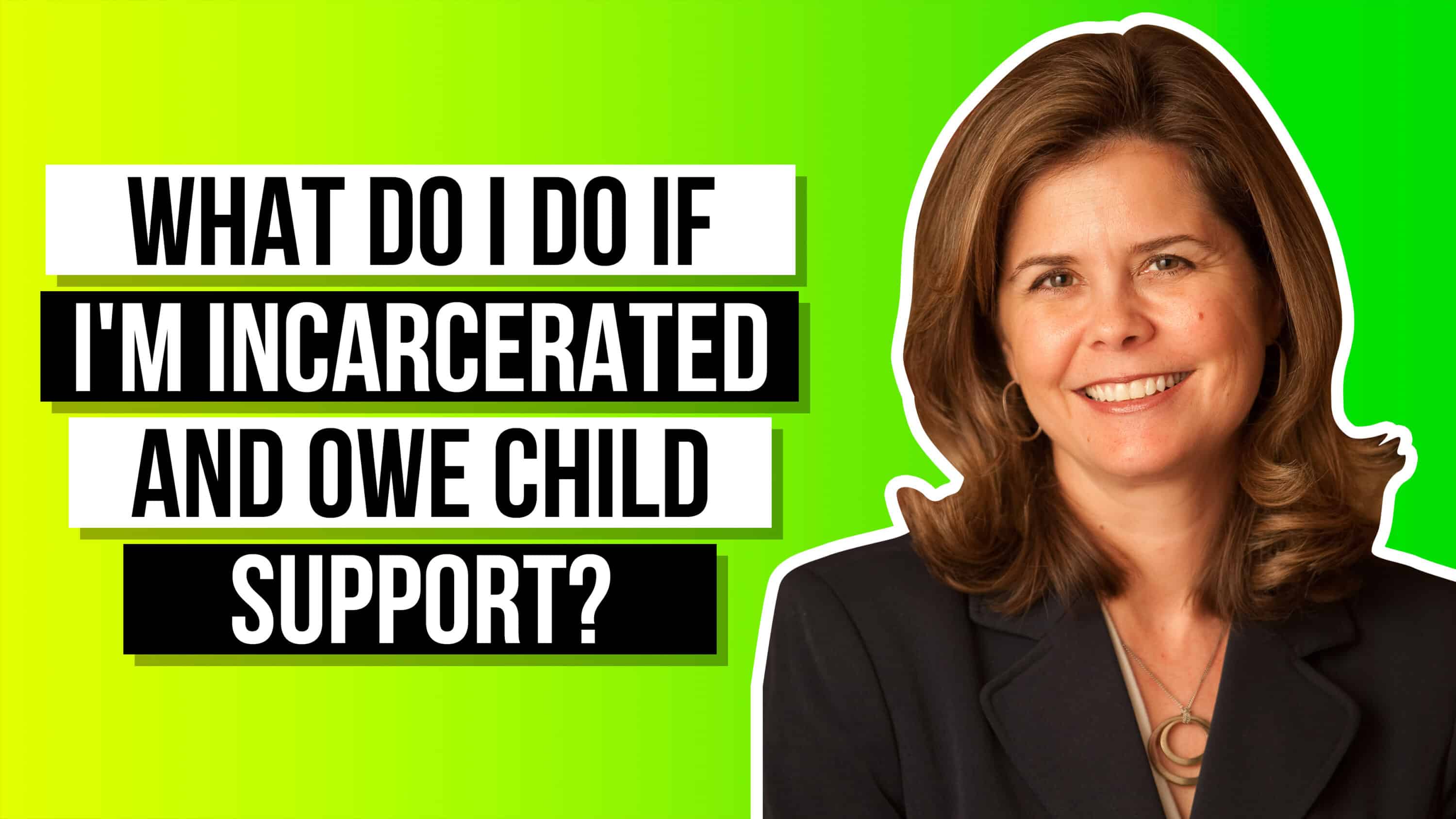
What Should I Do If I’m Incarcerated and Owe Child Support?
A parent with a child support order must pay the amount decreed. If they cannot, for example, if they are in jail, the obligation to pay child support does not automatically stop.
There’s an action required from them to get the court to cease or change the order.
How to Stop a Child Support Order During Incarceration
A person obligated to pay child support but is about to be incarcerated needs to inform the family court of the situation and ask for their obligation to be changed.
They can do this by requesting a review and adjustment of their order. The court will then determine if they are eligible for a child support modification.
If eligible, the family court will stop the child support order during the period of incarceration when the parent is unable to pay.
What Happens if a Modification is Not Filed in Court?
A request to modify a child support order needs to be filed with the family court before incarceration.
If this is not done, the obligation to pay child support will continue to exist and add up. Not to mention that the unpaid amount will accumulate interest for the whole period of non-payment.
There is no relief available to retroactively modify a child support order after non-payment. This means that if a request for modification is not filed with the family court before incarceration, they will not be able to ask the court to cancel out the obligation during the time of the sentence.
If possible, it’s recommended that a parent who’s about to be incarcerated works with an attorney who can help them fill in the paperwork and navigate the court process. This will ensure that they get their order stopped during the time they have no ability to pay child support.
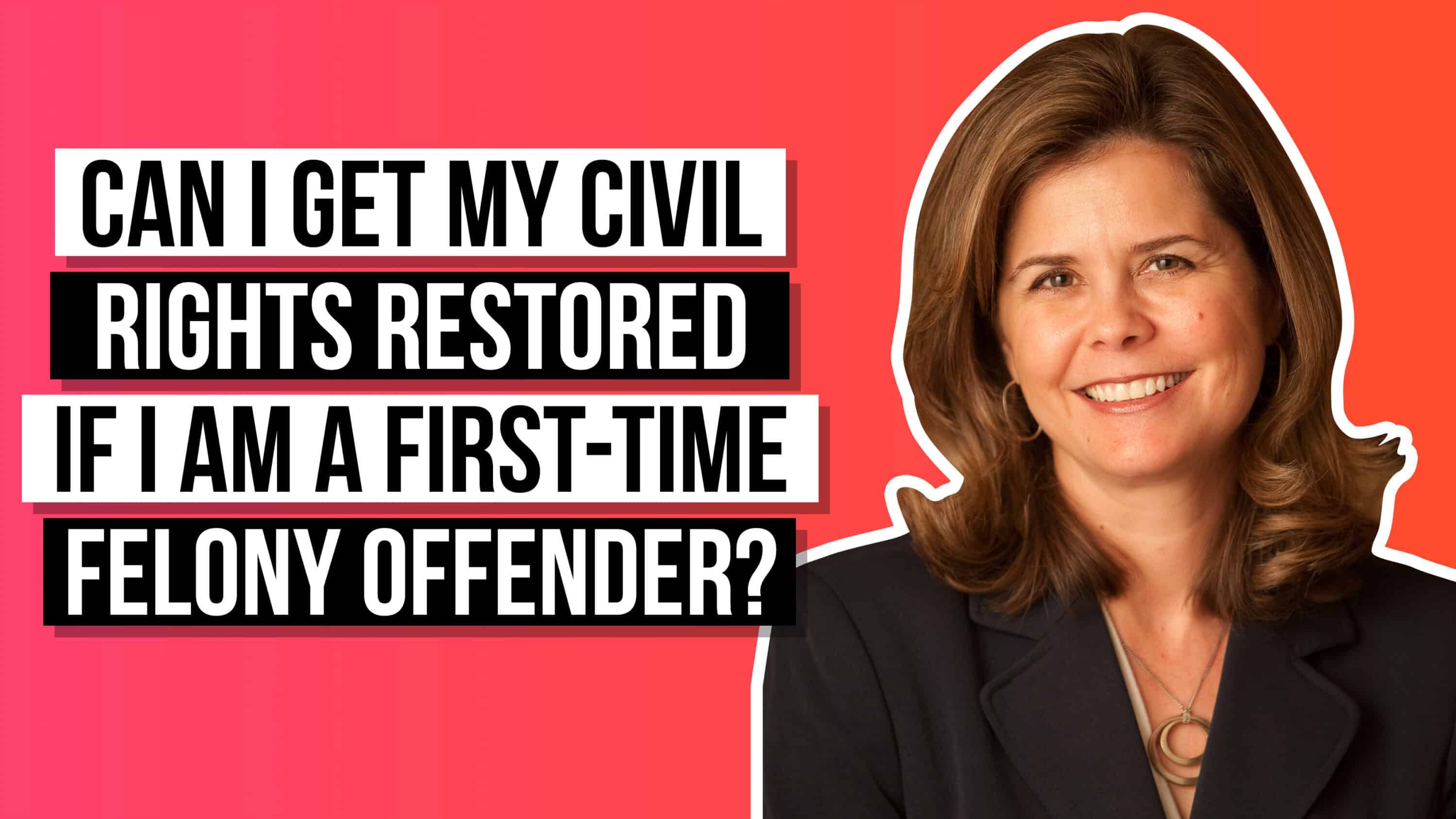
Can I Get My Civil Rights Restored in Arizona If I am a First-Time Felony Offender?
Arizona laws are stricter than most states when it comes to the civil rights of a felony offender. When someone is convicted of a felony, they lose their civil rights, which include the right to vote, serve on a jury, run for public office, or possess a weapon.
While these rights can be reinstated, the previous law in Arizona required the offender to go to court and submit an application. However, a new amendment was made to this law, which changes the process for civil rights restoration.
How Civil Rights are Restored in Arizona for First-Time Felony Offenders
The new law now allows first-time felony offenders to restore their civil rights without having to go through the court process. As long as they complete their jail time or probation, their civil rights are automatically restored without any further action needed on their part.
However, this new law comes with exceptions. The automatic reinstatement only applies to those who meet the following elements:
- The individual is a first-time felony offender.
- They completed jail time or probation.
- The offense is not classified as a dangerous or serious offense like sex offenses, armed robbery, arson, murder, and the like.
Process for Individuals With Subsequent Felony Offenses
The new law only covers first-time felony offenders. Those with subsequent offenses, i.e. second, third, or fourth-time offenders, do not get their civil rights automatically reinstated. They still have to go through the court process for the restoration.
How the New Law on Civil Rights Restoration Affects Out-of-State Convictions
The new law allows out-of-state convictions to be applied for in Arizona if the offender now lives in the state. They can send their applications to an Arizona court and ask for their rights to be restored for a felony they committed in the previous state where they lived.
The qualifications are the same. They must be first-time offenders who completed their sentence and their offense must not be classified as dangerous or serious.
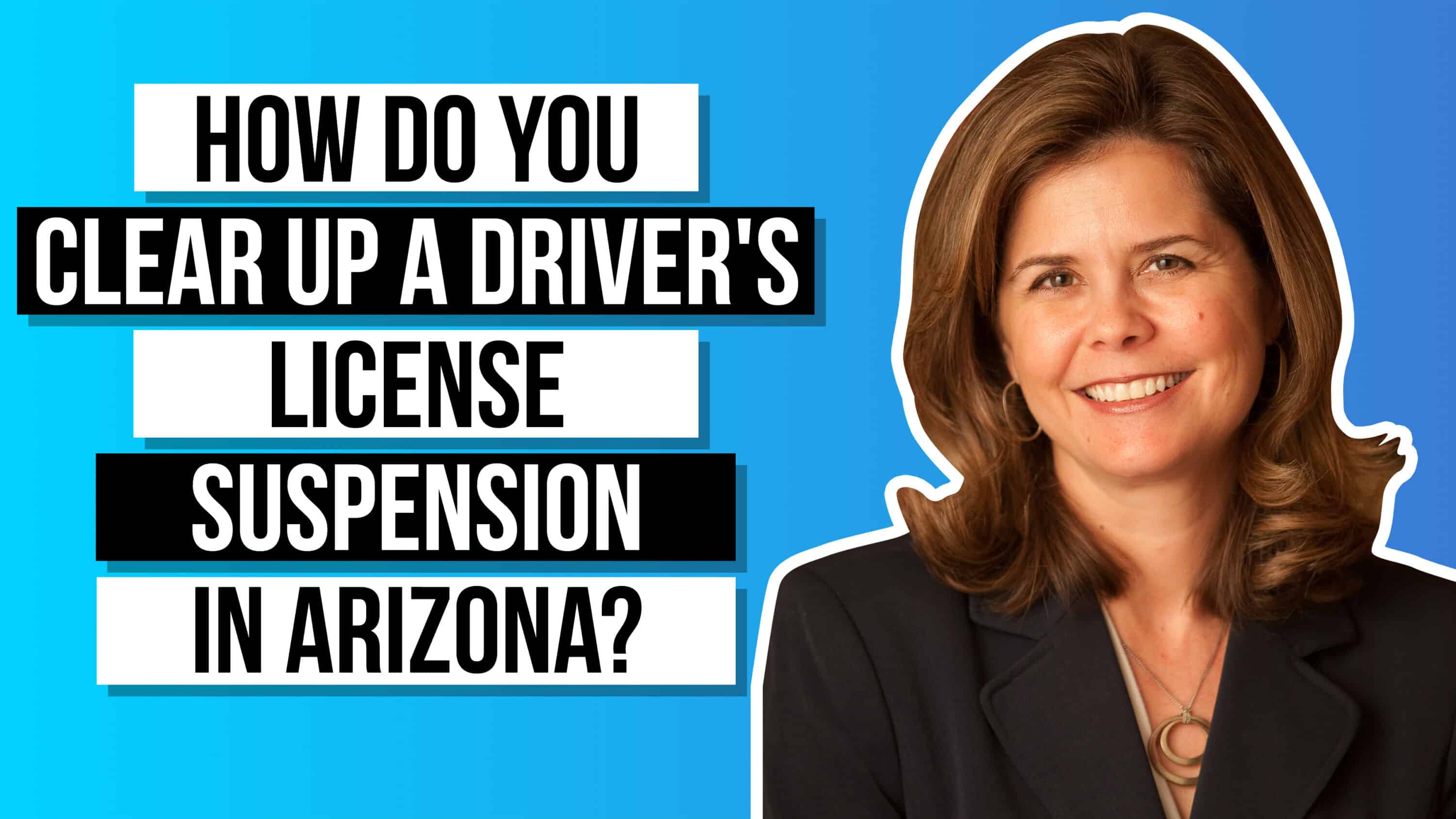
How Do You Clear Up a Driver’s License Suspension in Arizona?
The Arizona Department of Motor Vehicles (DMV) is rather confusing to work with. They have a habit of sending letters that apply to the same thing but discuss different processes, which leads to a lot of confusion on the driver’s part, especially when it comes to how to reinstate a license suspension.
But a close reading of each letter will reveal a very simple process and a clear step-by-step on how to clear up a driver’s license suspension.
The Process to Clear Up a Driver’s License Suspension with Arizona DMV
A person who has a license suspension in Arizona needs to do a couple of things in a timely manner to get their license reinstated. The exact steps they need to take may depend on their unique case, particularly the cause of their suspension.
Pay a Reinstatement Fee
The very minimum requirement to clear up a license suspension with Arizona DMV is to pay the reinstatement fee after the suspension period. This can cost around $50 to $60, depending on the driver’s age group.
Other Things To Do Depending on the Cause of the Suspension
Aside from paying the fee, there may be a couple more things required from the driver, depending on their offense. Here are a couple of examples.
Traffic Survival School
Those whose licenses got suspended because of the following offenses will be required to attend and complete traffic survival school (TSS):
- Running a red light/ stop sign
- Aggressive driving
- Moving violations that result in death or serious injury
- First moving violation for drivers under 18 years of age
- Drivers who accumulate 8 or more points in a 12-month period
DUI
A person whose license is suspended because of driving under the influence of drugs or alcohol will need to pass a drug or alcohol screening before they can get their license reinstated.
Revocation
A revocation, or removal of driving privileges, happens upon a person’s conviction of certain driving offenses. These include cases that involve DUIs, homicide or assault with the use of a vehicle, drive-by shootings, etc.
When a driver’s license has been revoked, they need to wait out their revocation period before they can apply for reinstatement. The application process begins by completing an investigation packet, which the DMV will use to conduct an investigation to ensure that all legal requirements have been met.
How to Monitor Your Driver’s License Status
All drivers with an Arizona license should go onto azmvdnow.gov and create an account. This is where they can view their driving license records and monitor the status of their suspension. Drivers who are looking to reinstate their licenses can also pay the reinstatement fee online through this website.
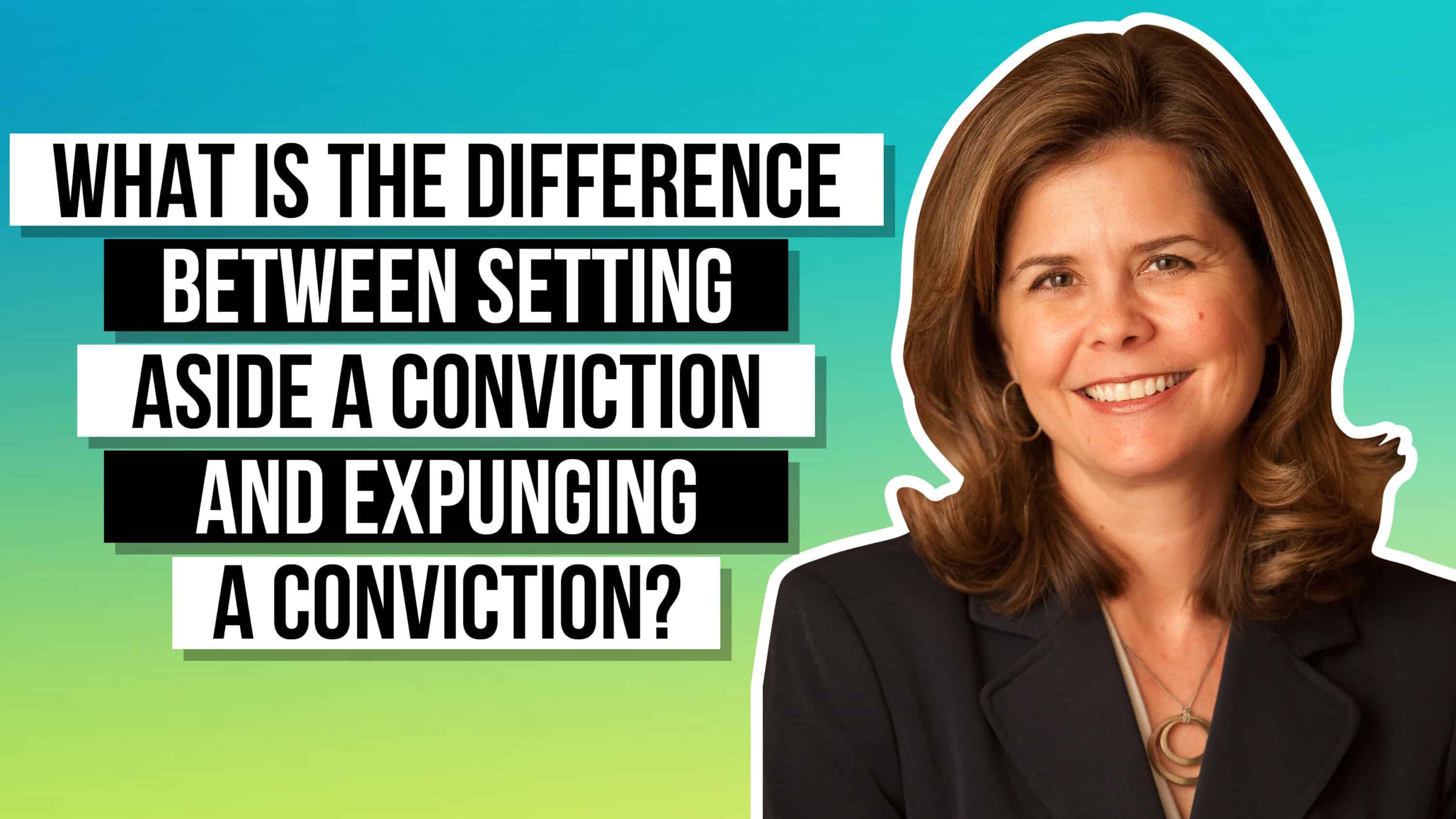
What is the Difference Between Setting Aside a Conviction and Expunging a Conviction?
A person who has been convicted of a felony and completed their sentence can file certain types of relief in court that can help them move forward with their lives and reinstate themselves back to society. Among these is an expungement of their criminal record and a motion to set aside a conviction.
Often, people mistake these two as one and the same. But they’re each a unique relief that has a different effect on the person seeking it.
What is an Expungement of Record?
On January 1, 2023, Arizona implemented a statute that allows a person convicted of a crime to seal their criminal record from public view. This is referred to as expunging their criminal conviction.
An expungement of records can be beneficial to a convict, allowing them to apply for jobs, build their credibility, get approved for personal or financial support, etc., without their criminal history getting in the way.
That’s the limit to what an expungement can do. It cannot reinstate a convict’s civil rights – for that, they must file a motion to set aside a conviction.
Criteria for Expungement of Record
If a person petitions a court to expunge their conviction, they need to meet certain criteria. The most important thing to know is that there is a time period that they need to complete before they can apply for expungement:
- Class two and class three felonies – 10 years after the completion of jail time or probation
- Class four, class five, and class six felonies – 5 years after the completion of jail time or probation
- Class one misdemeanor – 3 years after the completion of jail time or probation
Further, if a person wants several items on their criminal record expunged, they need to file separate petitions for each case.
What is a Motion to Set Aside a Conviction?
An expungement is different from a motion to set aside a conviction. The latter is an application that the convict can submit to the court in order to reinstate their civil rights, including:
- The right to vote
- The right to serve jury duty
- The right to run for public office
- The right to possess a firearm
A new Arizona law automatically restores these rights to first-time felony offenders after they have completed their sentence. However, those with subsequent offenses need to file a motion to set aside a conviction to reinstate these civil rights.
Criteria for a Motion to Set Aside a Conviction
Unlike in expungement, there is no certain time period to wait before being allowed to file a motion to set aside a conviction. However, it’s worth noting that a judge will not grant it unless there has been sufficient time to tell that the convict has completely changed their life and warrant the restoration of their civil rights.
There are also certain offenses that cannot be set aside. These include serious convictions, such as sex offenses, and other dangerous offenses like murder and arson.
Which One Should a Person File?
Oftentimes, a person should be submitting both a petition for expungement and a motion to set aside a conviction so that they can reap the benefits of both reliefs.
There are a lot of intricacies that go into these processes, so anyone interested in pursuing them should first speak to a competent defense attorney. A lawyer can help them understand their options and guide them through the process.
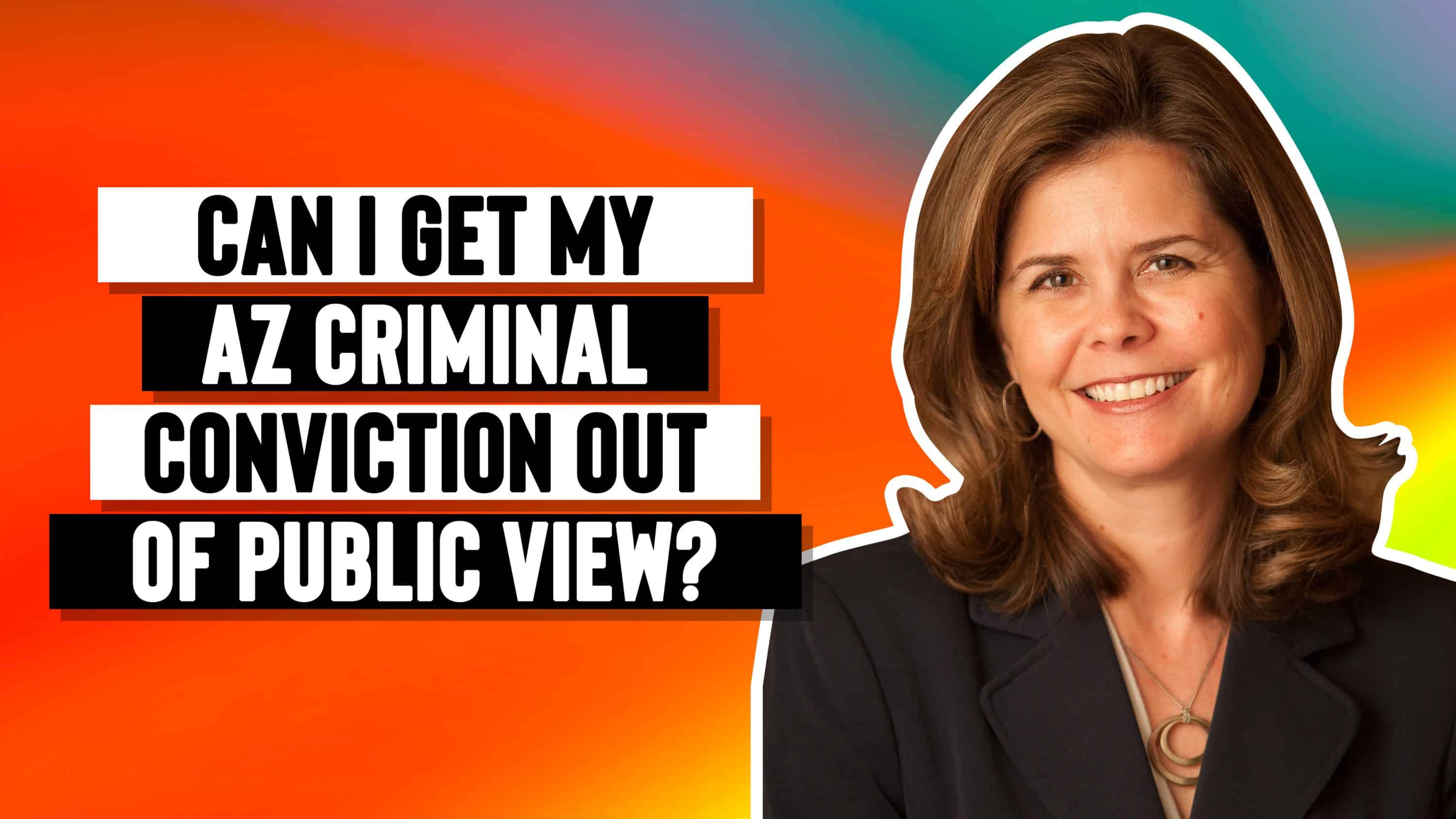
Can I Get My AZ Criminal Conviction Out of Public View?
A criminal conviction can affect a person long after they have served their sentence. Because the conviction goes into their record, it can hinder their ability to find employment, cause them to fail background checks, and overall affect how they interact with society.
But there’s a new law that will be implemented in Arizona soon, which will allow people to seal their criminal conviction out of public view.
New Law on Sealing Criminal Convictions and Arrests
A new law in Arizona that takes effect on January 1st of 2023 will allow people to file an application to get their criminal conviction and arrest records sealed and inaccessible to public viewing.
This is great news for those with criminal records as the new law basically gives them a clean slate, nourishing new opportunities that weren’t accessible to them because of their prior convictions.
Limitations of the New Law
But of course, the new law is not without its limitations. It is not applicable to all criminal convictions and there are certain time periods before a person can apply to get their conviction sealed.
Does Not Apply to All Criminal Convictions
The new law does not apply to all classes of criminal convictions. Only those with prior convictions of general and non-dangerous crimes can apply for the relief. Certain types of serious convictions for dangerous offenses, like crimes against children, are not eligible.
Time Limits
There are also time periods provided that limit when a person is allowed to apply to get their conviction sealed. These time constraints depend on the classification of the crime they were convicted for. A person cannot ask for their conviction to be sealed unless it has been:
- 10 years for a Class 2 or 3 felony
- 5 years for a Class 4, 5, or 6 felony
- 3 years for a Class 1 misdemeanor
- 2 years for a Class 2 or 3 misdemeanor
The time period starts once a person completes their sentence or probation.
How the New Law Benefits Arizona Residents
The new law is a great step that Arizona is taking to give people who have old convictions a new chance at life. With their criminal records sealed and away from the public eye, they are able to start a clean slate and find employment or access other opportunities.
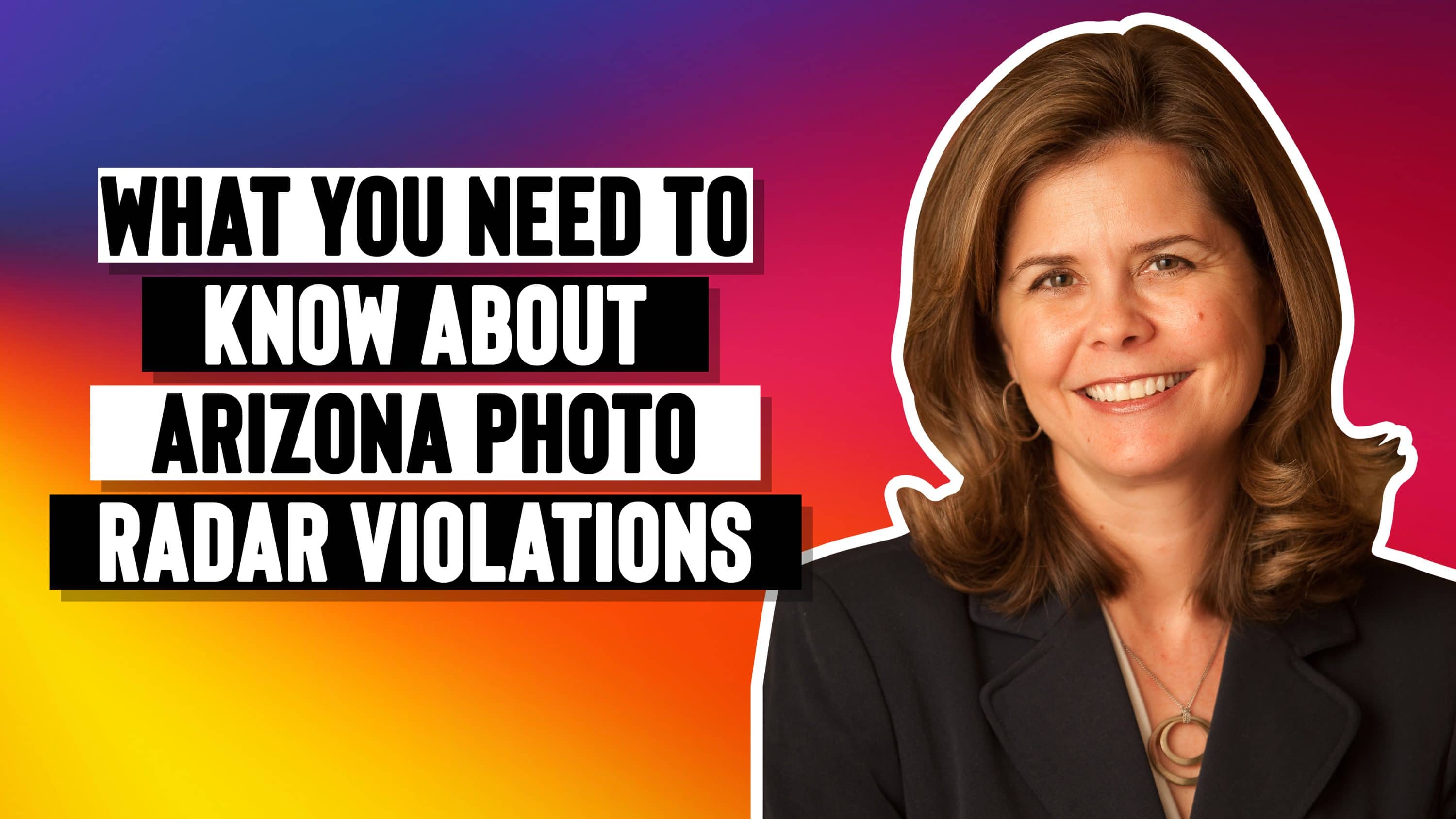
What You NEED to Know About Arizona Photo Radar Violations
Traffic enforcement is adopting new technologies to help ensure that traffic laws are being followed and to catch those who violate them. One of the developments involves the use of photo radar, which automatically photographs vehicles that are speeding or running red lights.
What is a Photo Radar Violation?
A photo radar violation is a type of speeding ticket that is issued when a driver is caught speeding by a photo radar camera. Vehicles that are flashed by a photo radar for speeding or running a red light receive a Notice of Violation in the mail a couple of months later. These notices will contain photos of the vehicle in the event of the violation and a request for the driver or owner of the vehicle to pay the fines.
What to Do If You Receive a Notice of Photo Radar Violation?
Some people think that a Notice of Violation is a court document and receiving it requires them to act on it. But despite the notice requesting for a fine to be paid or for the violating driver to be identified, it is not an official court citation.
According to Arizona law, a notice of violation is not a court document, and hence, the receiver is not obligated to respond to it. Lawyers recommend that this notice is ignored as most jurisdictions do not end up serving a traffic citation and complaint if they don’t respond to the notice.
What to Do If You are Served a Citation From the Court?
While photo radar violations often end with the driver ignoring the notice of violation, some jurisdictions do opt to serve a traffic citation and complaint. This may come a certain period after the notice and served the same way as any other civil lawsuit, usually in person by certified mail.
This is the only point when a person can act on the complaint. Because a citation is an official court document in Arizona, they should follow through with the penalty, whether it’s going to traffic school or paying the fine. But if it’s only a notice of violation, there is no need to act on it as most jurisdictions won’t even try to serve the vehicle owner for ignoring the notice.
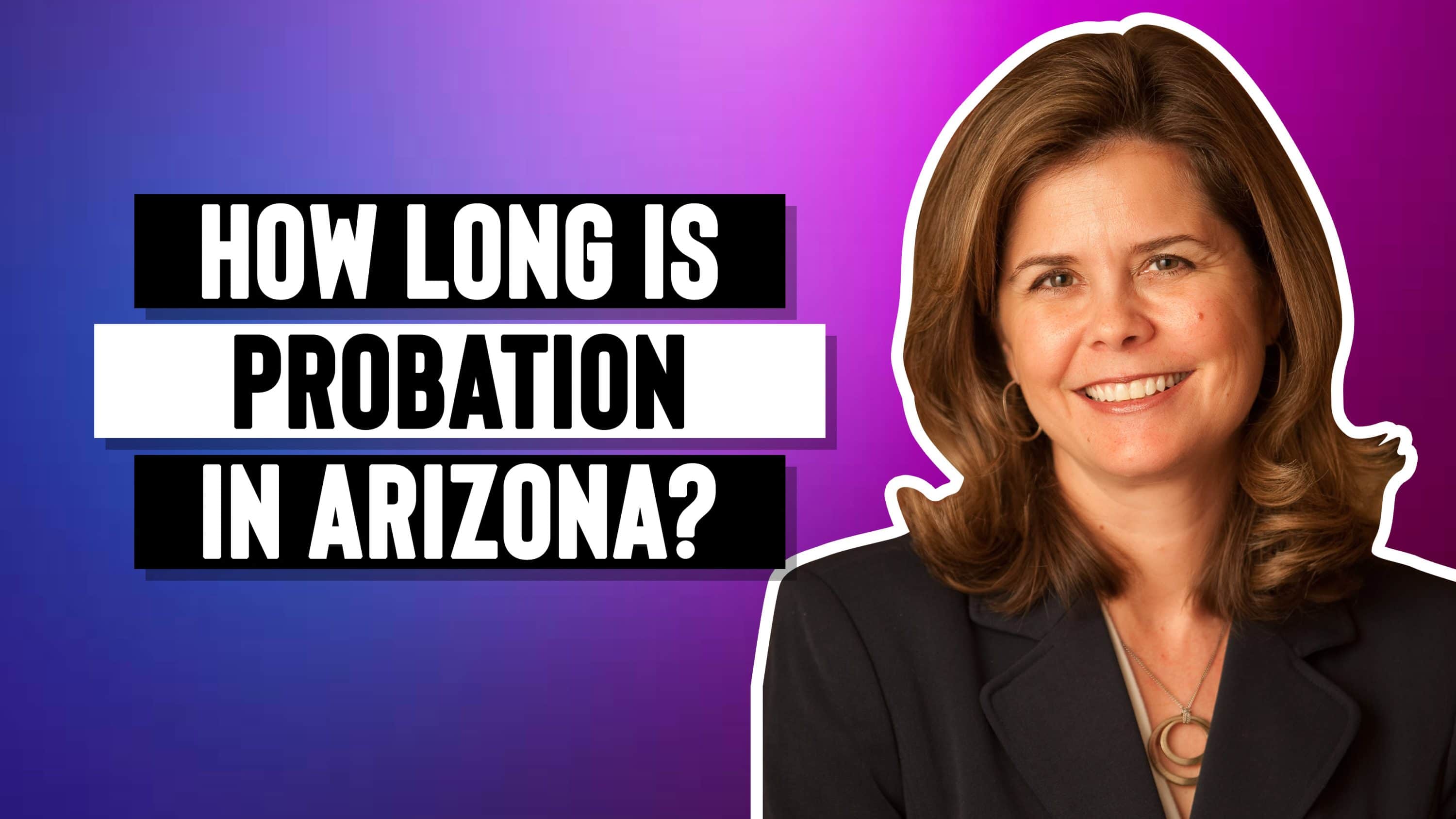
How Long is Probation in Arizona?
A person who is convicted of a misdemeanor or felony offense in an Arizona court can be placed on probation. An alternative to jail time, probation allows them to be released from confinement for a specified period, provided that they abide by the terms of their probation and coordinate with their probation officer.
Under Arizona law, a convicted individual can only be placed on probation for a certain amount of time, the length of which depends on the offense they were convicted of.
Probation Periods for Each Class of Criminal Offenses
Misdemeanors and felonies are categorized according to the seriousness of the offense and their accompanying penalties. These classes of criminal offenses also have differing probation periods, namely:
- Class two felonies – maximum of seven years
- Class three felonies – maximum of five years
- Class four felonies – maximum of four years
- Class five and six felonies – maximum of three years
- Class one misdemeanors – maximum of three years
Special Terms of Probation for Certain Types of Offenses
There are some offenses that carry their own special terms of probation. One example is driving under the influence (DUI). A misdemeanor DUI can get up to five years of probation while the maximum for a felony DUI is 10 years.
Some serious crimes, such as sex offenses, can carry a probation term that lasts the entirety of the convicted individual’s lifetime.
Things That Can Extend the Probation Period
The probation period can be extended for a number of reasons. Among these include if the convicted individual owes restitution or absconds in the middle of their probation.
Restitution
Restitution is a fine that convicted individuals have to pay to their victims. Even someone on probation needs to settle their restitution fees. If their probation period has expired but they have not completely settled their restitution, their probation can be extended.
The extension can be as long as five years for felonies and two years for misdemeanors.
Absconding
During the probation period, the convicted individual must report to their probation officer continuously. If they abscond, leave, or stop reporting, the court will issue a warrant for their arrest.
The time they are not accounted for is not counted in their probationary term. When they are caught, they will need to serve that missed period, which extends their probation time.
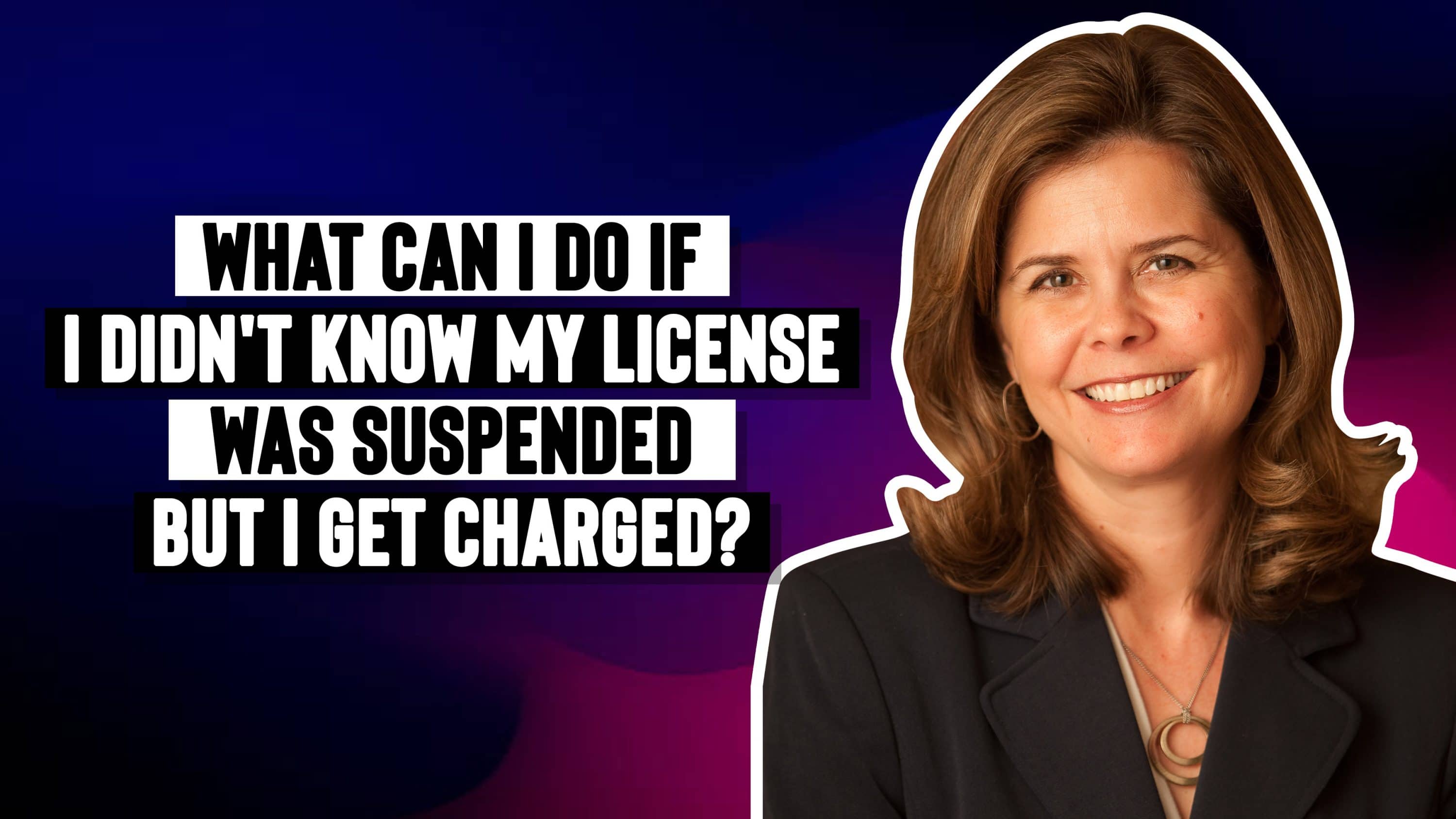
What Can I Do if I Didn’t Know My License Was Suspended But I Get Charged?
In Arizona, a driver’s license can be suspended for a number of offenses, such as driving under the influence of alcohol, multiple traffic violations, or other serious driving-related offenses. A person whose license is suspended is not allowed to operate a motor vehicle until they get their license reinstated.
However, there are a lot of drivers that are unaware that their licenses are suspended. And should they get pulled over by a police officer on the road and it comes to the officer’s attention that they are driving without a valid license, they can get charged with a criminal offense.
Not Knowing the License is Suspended Can Be a Defense
If a person is caught driving with a suspended license, they shouldn’t just plead guilty, especially if they were unaware that their license was suspended in the first place. The lack of knowledge that their license has been suspended can be a defense that will acquit them of the criminal charge.
For the prosecution to prove that a driver is guilty of driving with a suspended license, they must show two things:
- That the license has in fact been suspended by the Arizona DMV
- That notice of the suspended license was provided to the driver
If a driver was unaware of the suspension of their license because the DMV didn’t send a notice or the notice was sent to the wrong address, the driver can be acquitted and free from the criminal charge.
However, if it is proven that the driver was successfully notified of the suspension but they don’t know about it because of the failure to appear, they may be found guilty and sentenced to up to 180 days in jail and over $4,000 in fines.
Speak to a Lawyer
A person who is charged with a criminal offense for driving with a suspended license should speak to an attorney who can help them build a solid defense. If they did not know that their license was suspended, a lawyer can help prove it in court and obtain an acquittal.
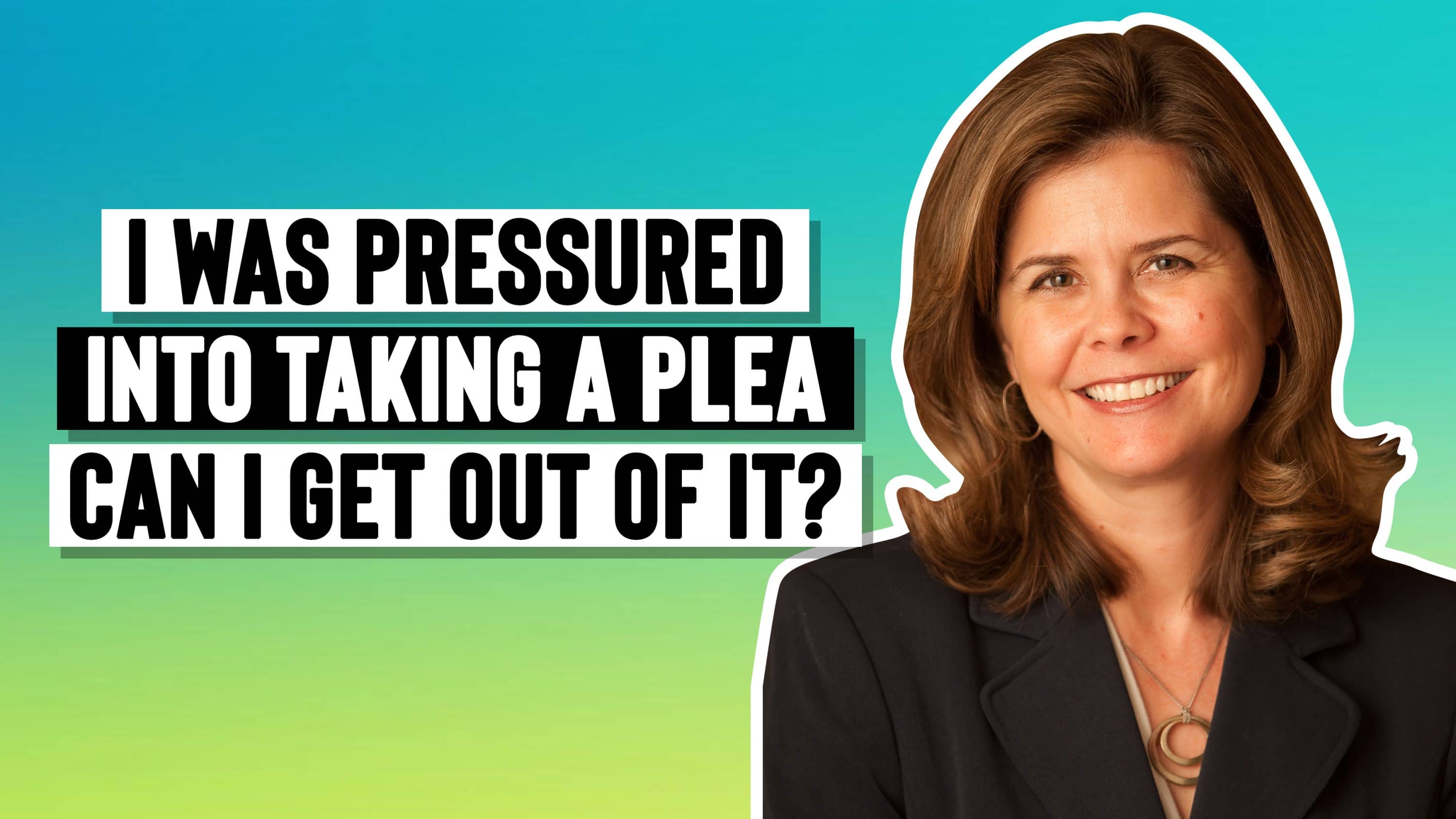
I Was Pressured Into Taking a Plea – Can I Get Out of It?
Entering a guilty plea is something that should be done with a lot of thought and consideration. After all, it can change the entire course of an accused’s life. Some people, after they have entered a plea of guilty, regret doing so because they felt pressured into it by their attorneys or family members. In these situations, it’s important for them to know if they have options to get out of their guilty plea.
Opportunity to Get Out of the Plea During the Hearing
Before the court accepts an accused’s plea of guilty, it is obliged to ask if the accused was forced, threatened, or promised anything outside of the plea agreement in order to convince them to plead guilty.
If the accused answers “yes,” the judge would not take the plea. If they answer “no,” the court is assured that the plea is voluntary and was given with free will. They will then accept the plea of guilty and move forward to sentencing.
Pressure vs. Force, Threat, Coercion, or Promise
An accused receives a lot of advice from their attorney before they decide whether or not to take a plea agreement. It’s a criminal defense lawyer’s job to convince the client to take a plea if it is more favorable to them and their unique situations.
However, the client still holds the ultimate decision of whether or not to accept the plea. They have every right to refuse a plea agreement and go to trial against their attorney’s advice. Or they can choose to accept the plea agreement because they were pressured to do so.
However, there is a stark difference between getting pressured into a plea agreement and the force, threat, coercion, or promise that the court is looking for during the plea hearing. Merely being pressured into it is often not enough. There needs to be serious grounds to get out of a guilty plea.
Can an Accused Get Out of a Plea Prior to and After Sentencing?
Once an accused has entered a plea of guilty, it is difficult to get out of it. While there are reliefs, it is a complicated process that requires solid proof or reasons that call for the withdrawal of the plea.
Prior to sentencing, the accused needs to show a manifest injustice that needs to be corrected, such as if the defendant was denied correct assistance by their lawyer or the plea was entered without knowledge of the sentence that could be imposed.
If the accused wants to withdraw from the guilty plea after sentencing, they will need to file a petition for post-conviction relief within 90 days of sentencing and show specific reasons why they should be given relief.
While there are ways to get out of a guilty plea, it is a very difficult process that does not guarantee withdrawal. That’s why it’s important that the accused speaks to their attorney and weighs their options carefully.
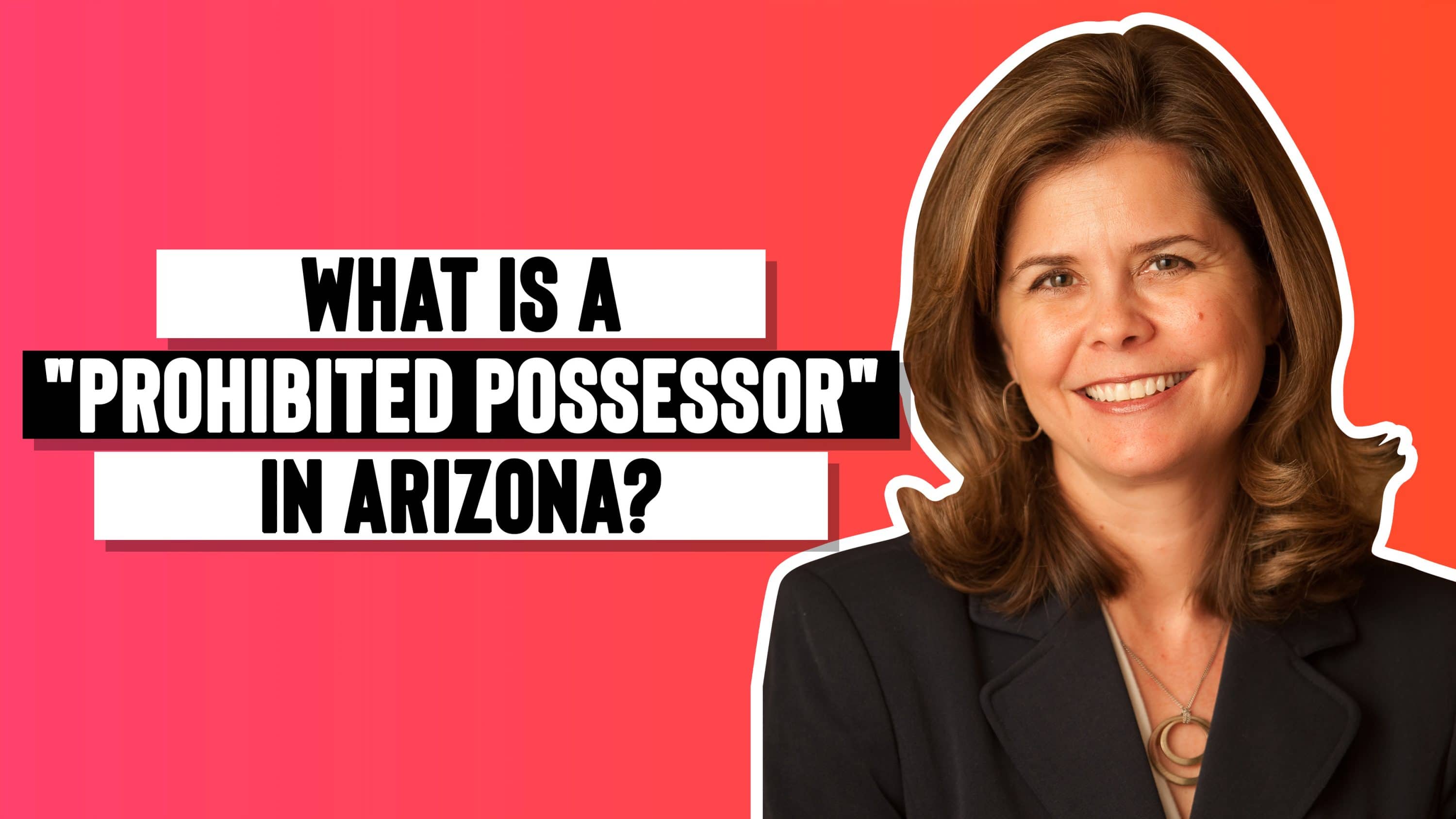
What is a Prohibited Possessor in Arizona?
While Arizona is a firearm-friendly state, some people are prohibited by Arizona criminal law to possess deadly or prohibited weapons. These people are called prohibited possessors. But what exactly does this mean and how does one become a prohibited possessor in Arizona?
Legal Definition of a Prohibited Possessor in Arizona
Under the criminal statutes of Arizona, a prohibited possessor is someone who is prohibited by law from possessing a deadly or prohibited weapon by virtue of a prior felony conviction, acute or grave disabilities, delinquency for a felony, etc.
How Does a Person Become a Prohibited Possessor?
Becoming a prohibited possessor is not something that is ordered by a judge in a criminal court. Instead, it happens by virtue of the existing criminal laws in Arizona. According to A.R.S. § 13-3101 (A)(7), a prohibited possessor is any person:
- Who is a danger to themselves or to others
- Who has an acute disability or grave disability
- Whose right to possess a firearm has not been restored by the court
- Who has a prior felony conviction
- Who is serving a term of imprisonment
- Who is under felony probation, parole, community supervision, work furlough, home arrest, or release
- Who is a nonimmigrant that maintains a foreign residence
What Happens When a Prohibited Possessor is Caught With a Firearm?
If a person is classified by law as a prohibited possessor and is caught with a deadly or prohibited weapon, they can be charged with a class 4 felony for misconduct involving weapons. If found guilty, the prohibited possessor can be facing one to 3.76 years in jail.
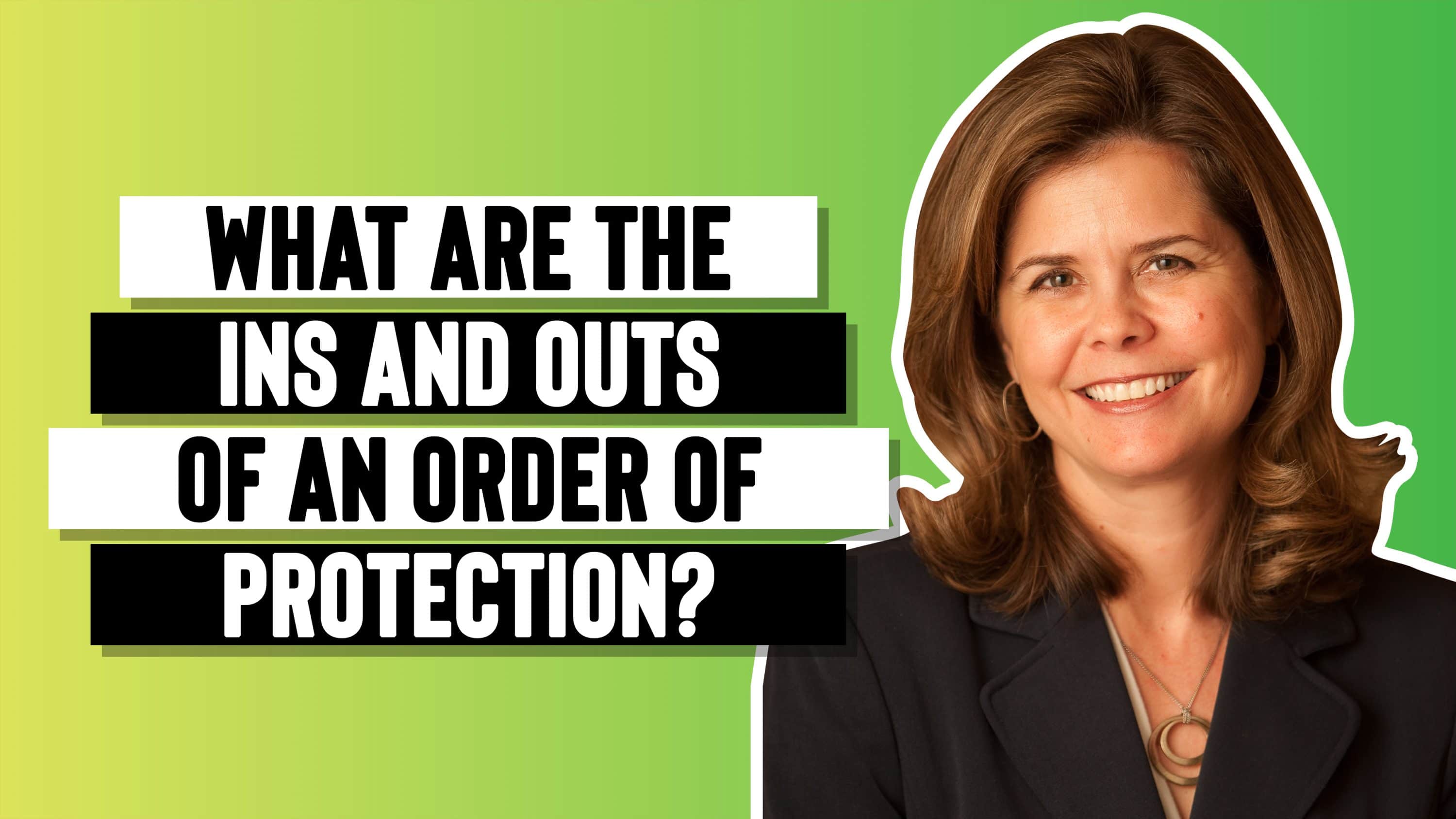
What are the Ins and Outs of an Order of Protection?
People who have had issues with others in the past may seek to protect themselves by asking for relief in court. The judge can grant either an order of protection or injunction against harassment, depending on the relationship of the parties involved in the case.
An order of protection has strict rules that need to be followed to prevent a violation. But in order to understand what it covers, its definition must first be understood.
What is an Order of Protection?
An order of protection is a court order that prohibits a person from having any form of contact with another. When someone is on the receiving end of an order of protection, they cannot meet the person who took out the order in person or reach out to them by phone.
For an order of protection to go into effect, it needs to be served. After service, it is valid for one year. The person served with an order of protection can challenge the order and request a hearing to contest it.
Order of Protection vs. Injunction Against Harassment
An alternative to an order of protection is an injunction against harassment. While they both have the same effect of prohibiting contact, they involve different types of relationships between the parties.
An order of protection applies to relationships between family members or domestic partnerships. On the other hand, an injunction against harassment is given when the case involves third persons without domestic or familial relationships with each other.
Is it a Violation if the Person Who Took Out the Order Made First Contact?
There are some cases wherein the person who took out the order is the one who initiates contact with the person who has been served. While this may not seem like a violation, it is actually part of the contact prohibition and can be a basis for a charge for violating an order of protection.
If the person who took out the order wants to remove it, they need to go to court to modify the order of protection or dismiss it altogether.
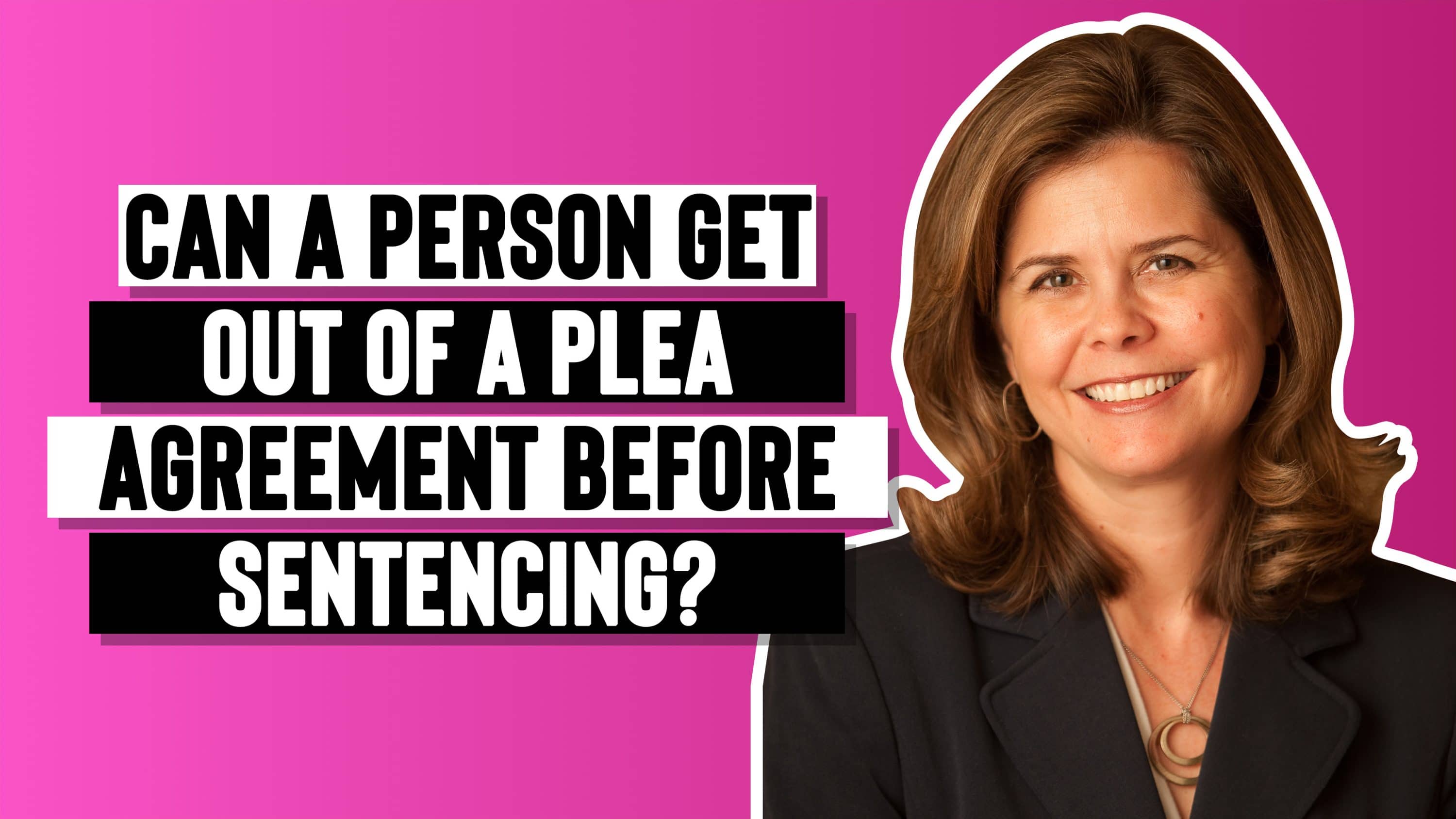
Can a Person Get Out of a Plea Agreement Before They are Sentenced?
When a person gets charged for a crime, they may have the opportunity to enter into a plea agreement with the prosecution. A plea agreement or plea bargain is a concession provided by the prosecutor in exchange for the accused pleading guilty to the crime charged. Depending on the discretion of the prosecutor and the unique circumstances, the concession can be a reduced sentence or punishment.
With the advice of their lawyer, the accused makes the decision of whether or not to enter into plea agreements. While agreeing to a plea bargain is not final and permanent, there are only unique circumstances that allow a withdrawal.
When a Person Can Withdraw From a Plea Agreement
When an accused decides to accept the plea bargain, they need to formally agree to the agreement on the record. This is done in an Arizona court. If the court defers its acceptance of the agreement, either party (both the prosecution and the accused) can withdraw from the agreement without cause.
How to Get Out of a Plea Agreement After Court Acceptance
If the court, however, has accepted the plea agreement in the plea proceeding, withdrawing from the agreement requires a more difficult remedy. The accused who wants to get out of the plea agreement needs to file a motion with the court and prove manifest injustice.
Manifest Injustice
A showing of manifest injustice is a prerequisite to getting approved for a motion to get out of a plea agreement. The accused must prove that they entered the plea without adequate information or evidence beforehand. Manifest injustice can look like the following:
- The accused was given the wrong advice
- The decision to enter into a plea agreement was based on inaccurate information
- There is new evidence that the accused was not aware of before making the decision to enter into the plea agreement
Can the State Get Out of a Plea Agreement?
If it is the State or prosecution that wants to get out of the plea agreement, they are also bound by strict rules and procedures. At the very least, they must provide and establish a good reason for withdrawing.
Commonly, the State opts to get out of the plea agreement if the defendant has breached the plea, such as by providing information that was proven false during further investigation, and if the defendant committed a crime after the plea proceeding and before sentencing. In these instances, the court will allow the State to withdraw from the plea agreement.
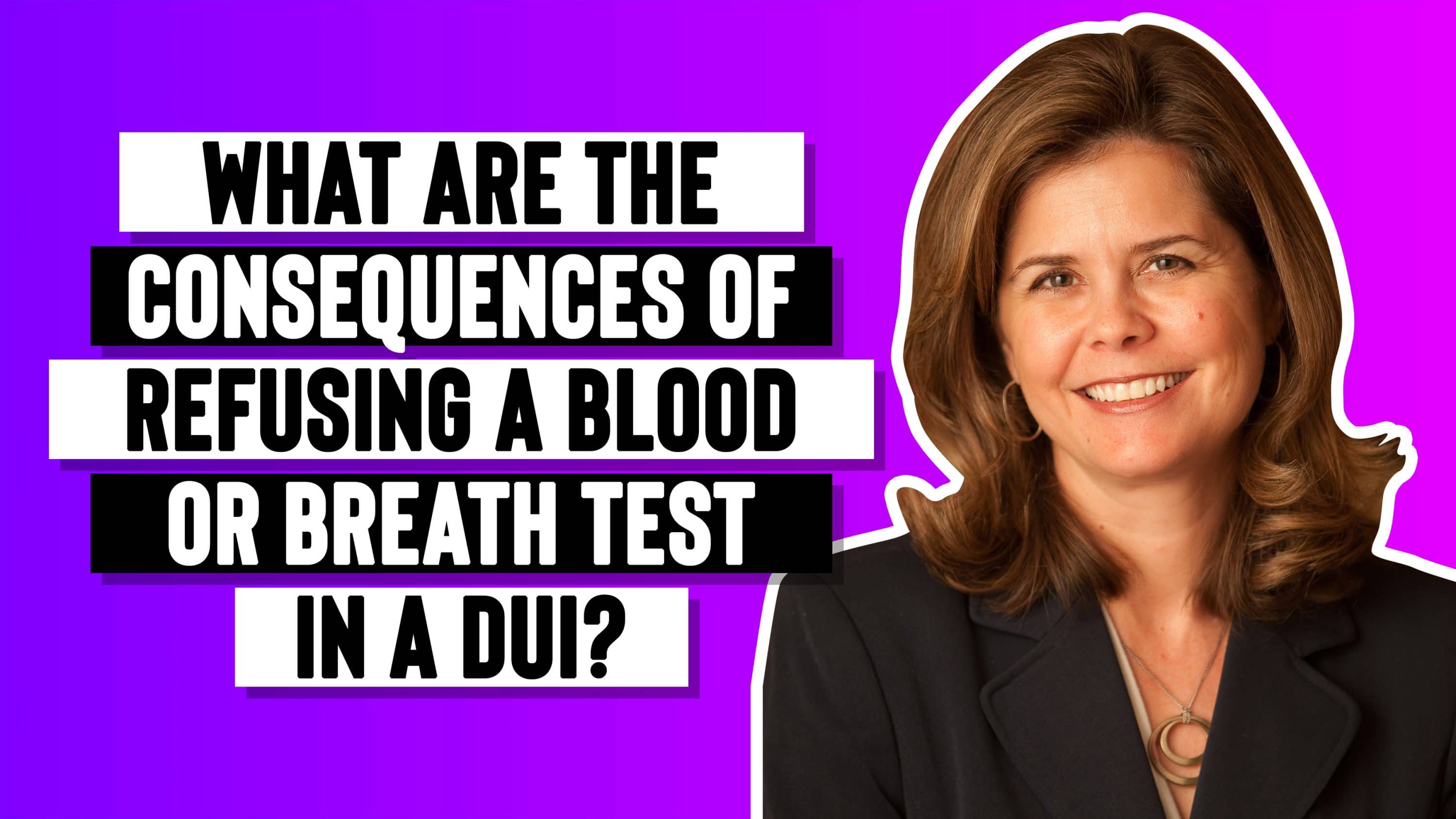
What are the Consequences of Refusing a Blood or Breath Test in a DUI?
Driving under the influence (DUI) of alcohol or drugs is among the biggest causes of road crashes or accidents that lead to serious injury or death. As such, police officers are trained to pinpoint signs of DUIs and can ask suspicious drivers to pull over.
To determine intoxication, the police officer can conduct a blood test or breath test. However, this needs to be done with the consent of the driver.
Can the Driver Refuse a Blood or Breath Test?
Consent is a necessary prerequisite to conducting a blood or breath test. Without it, the police officer is without authority to force the driver to abide by the tests to prove DUI. A driver can absolutely refuse to submit voluntarily.
What Happens When a Driver Refuses a Blood or Breath Test?
When a driver refuses to submit to a blood or breath test, the police officer will inform them of the consequences. The driver can either:
- Lose their privilege to drive for at least a year
- Lose their license for two years if they have a prior refusal in another DUI case
In DUI investigations, it’s important that the driver asks to speak to their attorney, who will advise them on what to do regarding the blood or breath test.
What if the Police Officer Does Not Ask for Consent?
There are some jurisdictions wherein the police officer does not ask for consent or goes ahead with the blood or breath test even after a refusal from the driver. In these situations, the driver’s rights under investigation are encroached, which makes it all the more important to seek the advice of an attorney.
A lawyer can properly inform on the steps to take when pulled over for a DUI and answer questions on license suspensions associated with DUI cases.
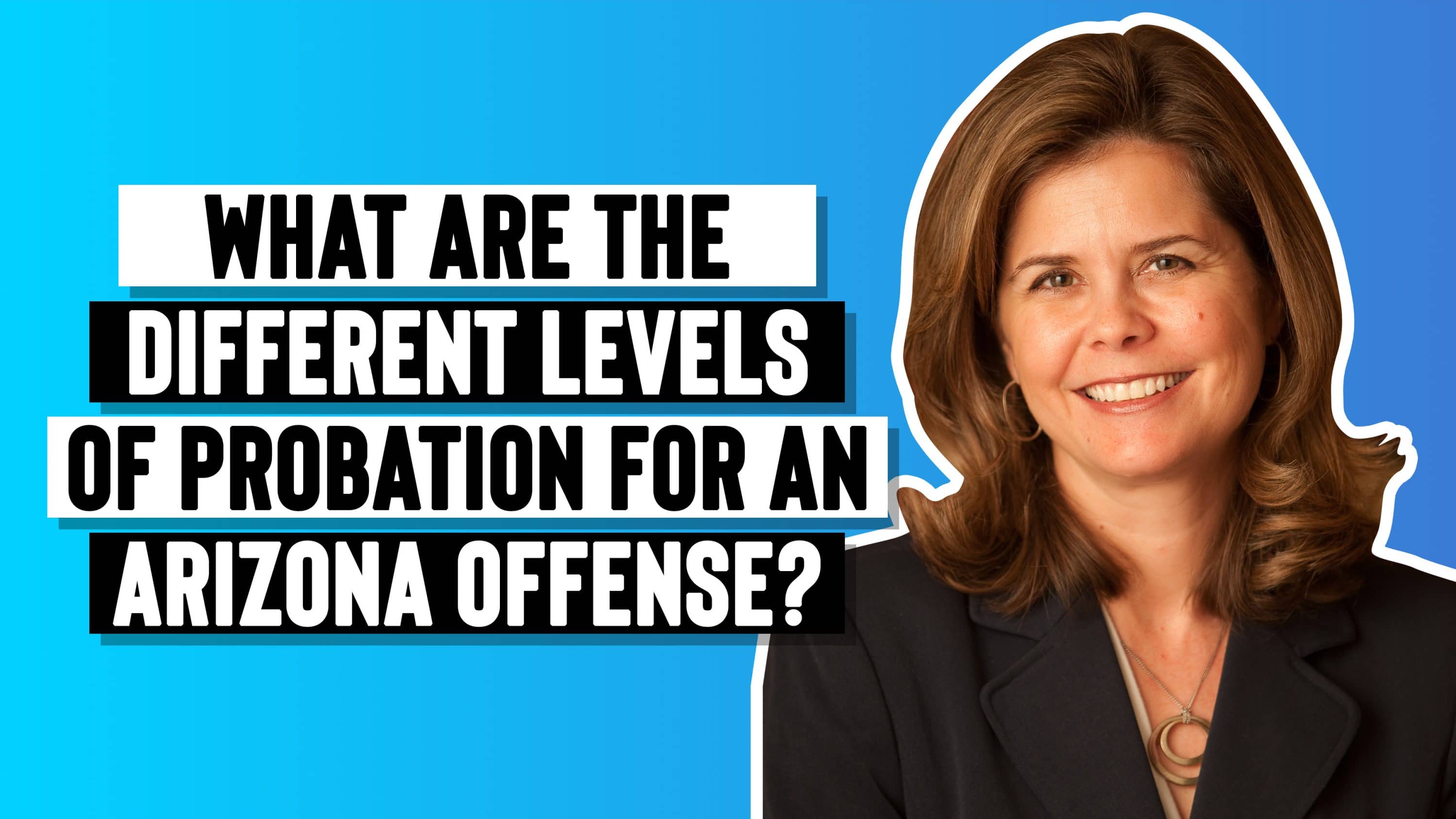
What are the Different Levels of Probation For an Arizona Offense?
Arizona has a rehabilitative approach to punishing a person convicted of a criminal offense. As much as possible, they want the convicted individual to be able to reinstate themselves back to society, hence offering probation as one of the options of punishment.
Probation isn’t a one-size-fits-all approach and is often tailored depending on the crime the individual was convicted of.
The Levels of Probation
There are three main levels of probation: summary probation, supervised probation, and intensive probation supervision.
Summary Probation
The lowest level of probation is summary probation. Usually granted to misdemeanor offenders, summary probation is unsupervised, requiring no meetings or check-ins with a probation offer. Depending on the offense, this informal probation level lasts one to five years and is only granted to those who are not seen as a danger to the community.
Supervised Probation
The second level of probation is called supervised probation. Here, a probationer is assigned a probation officer who they need to meet, check-in with, and report to from time to time. The terms of the probation also impose some limitations on their rights and restrict certain freedoms.
Supervised probation is usually granted in felony convictions, as well as some misdemeanor offenses. Depending on the offense, supervised probation can have stricter terms and restrictions. This applies in cases that involve:
- Sex offenses
- White-collar convictions
- Domestic violence
- Driving under the influence
If the probationer violates any terms of their supervised probation, the court can increase their restrictions and move them up to intensive probation supervision.
Intensive Probation Supervision
The strictest level of probation in Arizona is called intensive probation supervision or IPS. Considered as the last level of probation a convicted individual can get before going to prison, IPS imposes strict rules and steps that a probationer needs to take so they can earn their way back to a lower level of probation.
Intensive probation supervision is a 9-month program, during which the probationer needs to abide by the rules and restrictions. If they violate probation terms, the court may revoke their probation and send them to prison.
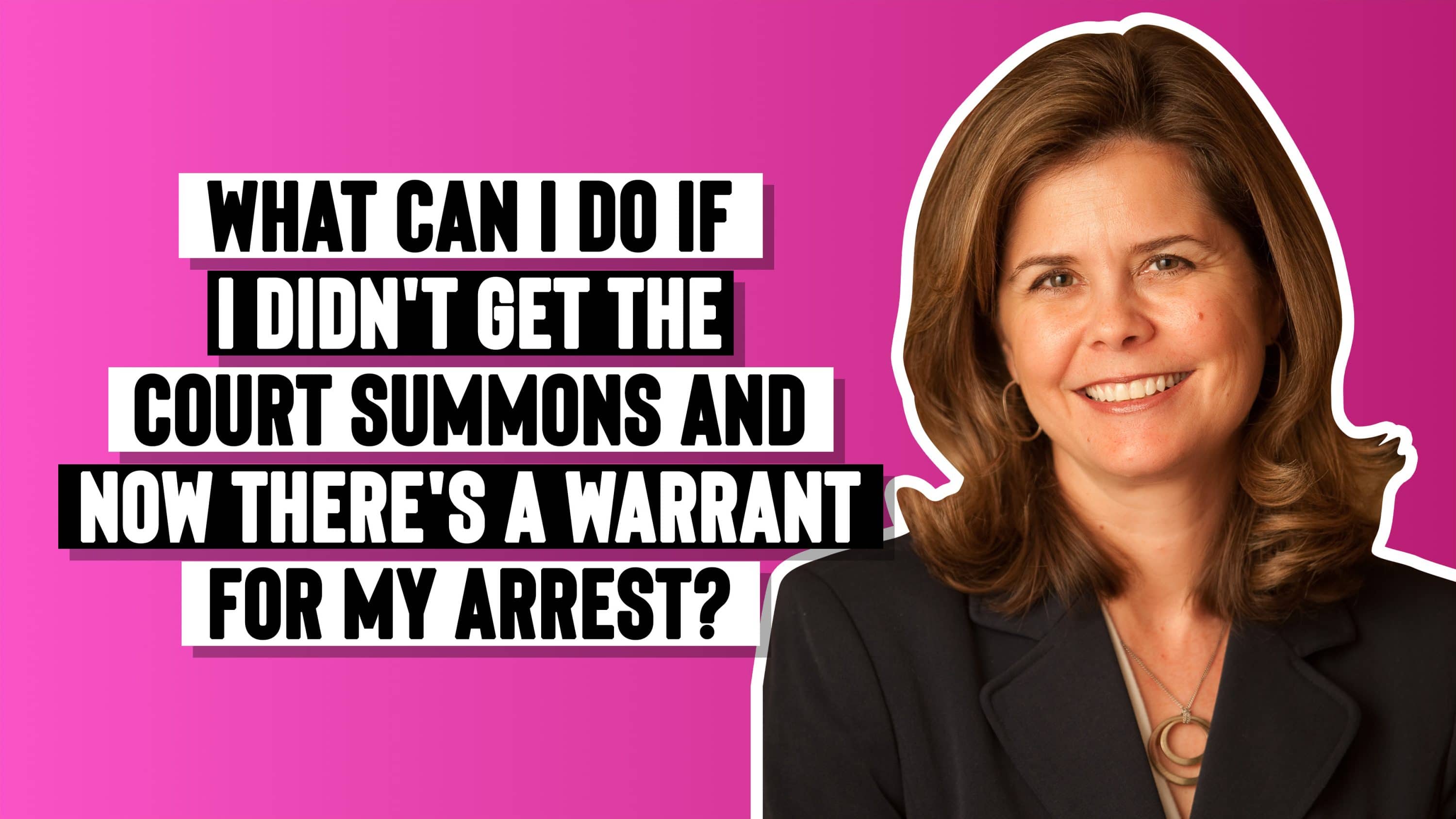
What Can I Do If I Didn’t Get the Court Summons and Now There’s a Warrant For My Arrest?
When there is a case pending against an accused, the court will notify them of the charge and ask them to show up in court by means of court summons. If the accused does not appear on the dates indicated, a judge will issue a warrant for their arrest.
While the process seems simple and straightforward, there are a lot of things that can go wrong from the point the court summons are sent out. There are many cases wherein court summons are sent to the wrong address and hence are not being received by the accused.
Where Court Summons Are Sent
A court sends out summons by certified mail to the accused’s last known address or the address indicated on the police report. Upon receipt, the accused should sign for it, indicating that they have received the court summons.
If they don’t, however, the mail will go back to the court as undeliverable. At this point, the court will issue a warrant for the person’s arrest and set a bond.
What To Do If You Did Not Receive Court Summons and There’s a Warrant For Your Arrest
If an accused never received summons to appear in court and learns that they have a warrant out for their arrest, the first thing they should do is contact a knowledgeable criminal defense attorney who can help them deal with the issue.
A lawyer will help file a motion to quash the warrant of arrest and appear in court with the accused. When the court sees that they did not, in fact, receive the summons and is voluntarily coming forward, the judge will quash the warrant and set a new court date without taking the accused into custody.
What If You Don’t Do Anything About It?
If the accused does not come forward and file a motion to quash, the warrant will still be valid and effective until the accused is caught and held in custody. No one wants to sit around knowing they have a warrant out for their arrest, so at the earliest possible opportunity, it’s important to engage the help of a criminal attorney to resolve the issue.
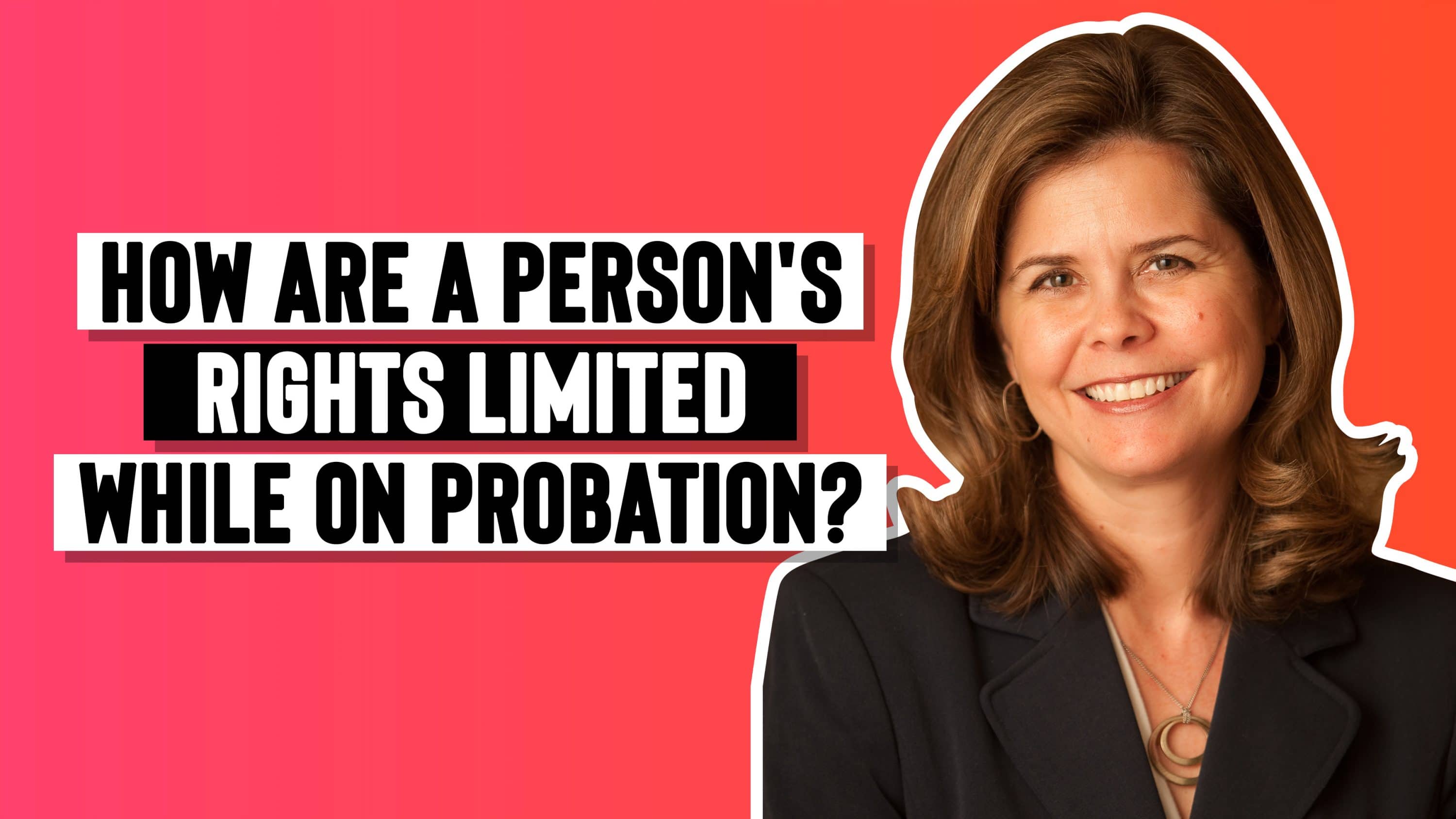
How Are A Person’s Rights Limited While On Probation?
A person who is on probation for a felony is given the benefit of being able to reinstate themselves with their community. They can live outside of prison, look for employment, meet family and friends, and experience the freedom that unincarcerated people have. While probation is a step towards normalcy after being convicted of a felony, it does not come without limitations.
When a person is placed on probation and is assigned a probation officer, some of their rights may be limited. The restrictions that are placed upon them will depend on the type of probation they are in.
General Limitations in Felony Probation
A person on felony probation will have restrictions on:
- Who they associate themselves with – They cannot associate themselves with other probationers or those who have a felony conviction
- Possession of weapons – During the probation period, they cannot possess any type of weapon.
- Privacy – A person on probation can be searched by their probation officer at any time, even without probable cause.
These are the basic restrictions and limitations on a probationer’s rights if they are under felony probation.
Limitations for Specific Types of Probation
A person under a specific type of probation may have further restrictions. For example, someone convicted of a sex offense may not be allowed to use a computer or access the Internet. In probation for other white-collar crimes, the probationer may have to get permission from their probation officers to get a loan or be required to surrender their paychecks for review.
The limitations on a probationer’s rights can be more specific depending on the type of crime they were convicted of and the type of probation they have been granted.
How To Find Out Which Rights Are Restricted While On Probation
Because the limitations and restrictions while on probation can differ on a case-to-case basis, it’s important for a probationer to be aware of what they can and can’t do. All restrictions and rules are outlined in the terms of their probation, which the probationer is required to read and sign. If there’s anything that they do not understand, they should talk to their probation officer to prevent any misunderstandings that can lead to the revocation of their probation.
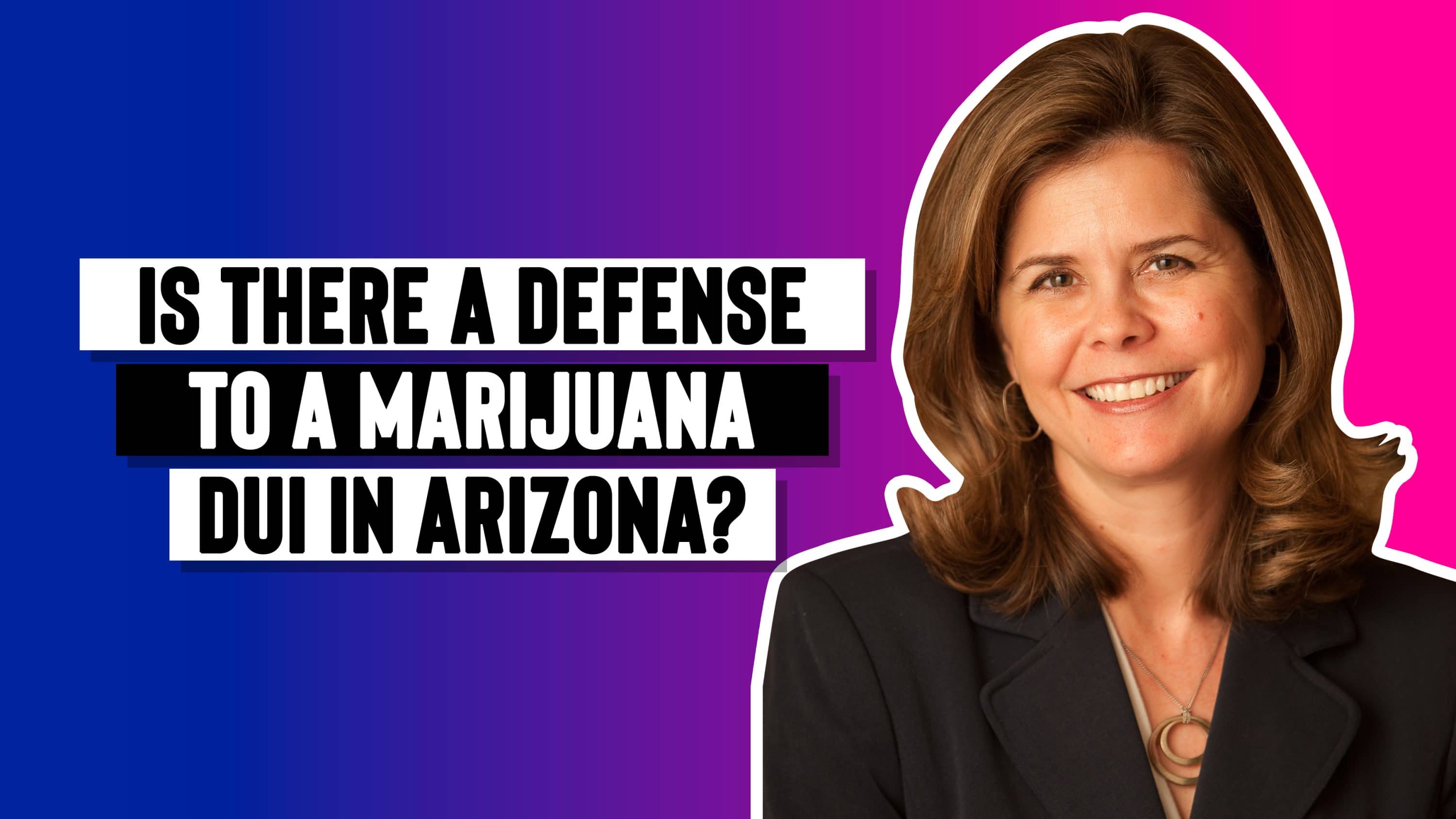
Is There a Defense to a Marijuana DUI in Arizona?
Driving under the influence of alcohol or regulated drugs is one of the most common causes of car crashes in the United States. While alcohol impairment is easy for police to prove and courts to penalize, the same cannot be said for marijuana impairment. Hence, persons charged for a marijuana DUI in Arizona may be able to build a solid defense.
Is Marijuana Legal in Arizona?
Arizona has passed a law that allows recreational marijuana use, making it legal at the same level as alcohol. The legalization of marijuana has changed the game for marijuana DUI offenses, with violators less likely to be convicted and if so, incurring a lesser penalty than before marijuana’s legalization.
Can Police Prove Marijuana Impairment?
Before a driver can be charged with a marijuana DUI, police officers first have to prove that the driver was impaired. However, this is easier said than done because there is currently no consensus on what level of THC is impairing. Unlike alcohol that has an impairment level of .08 and above, there is no exact THC content that indicates marijuana impairment.
Current field sobriety tests, such as walking a line, standing on one leg, etc. will also not cut it because these are made specifically for alcohol impairment. They are not indicative of marijuana use.
Are Marijuana DUIs Defensible?
Because research on marijuana impairment is still in progress and there is currently no consensus in the scientific community, marijuana impairment is hard to prove. Hence, they are very defensible, especially if the driver does not display the type of impairment that is usually seen in alcohol use.
Because it’s possible to build a solid defense for a marijuana DUI, it’s important that drivers do not automatically plead guilty. They should first consult with a good criminal defense attorney who has experience working with DUI cases. A lawyer can look into all the possible defenses and build a strong case for the accused.
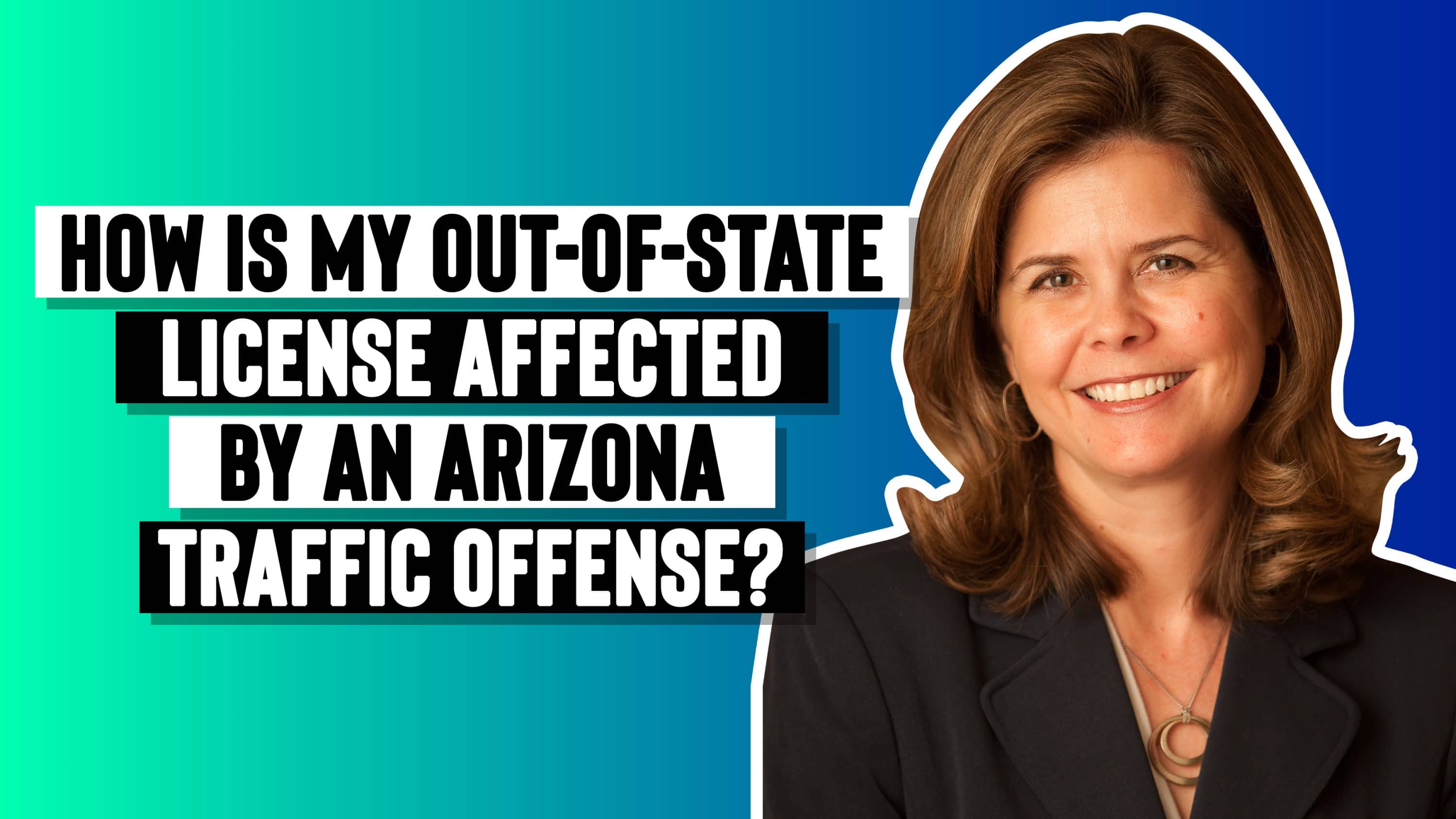
How is My Out-of-State License Affected By an Arizona Traffic Offense?
Driver’s licenses are mainly governed by the state where they were retrieved. But if a driver drives in and violates traffic rules in another state and is held in a conviction for a traffic offense, they can still be penalized with fines and suspensions, subject to certain limitations.
How Arizona Penalizes Out-of-State Driver’s Licenses
When a person with an out-of-state license receives a traffic violation ticket and is convicted in Arizona, the court reports their violation to the Arizona Motor Vehicle Department. This agency can impose the standard penalties for the offense, such as a 90-day license suspension for a DUI.
While this suspension of a driver’s privileges is only applicable within Arizona, the Arizona Motor Vehicle Department can also report the violation to the licensing agency that issued the subject license, who can likewise take action against the driver based on their own State’s traffic rules, regulations, and penalties.
For example, a driver with a California license who gets a traffic violation in Arizona can also be subject to penalties and suspensions in California.
Reinstating Driving Privileges in Arizona
When a person’s license gets suspended in Arizona and the driver completes the suspension period, they will have to go back and reinstate their privilege to drive in Arizona. Some out-of-state drivers neglect this, especially those who have no plans of visiting and driving in the State in the future.
However, the failure to reinstate driving privileges in Arizona can lead to problems with the driver’s license in the long run. Their licensing agency in their state of residence has the authority to suspend their license until they clear up their traffic offense in Arizona.
With that, any traffic violation should be completely cleared up in the State it occurred to prevent it from affecting the driver’s license even further.
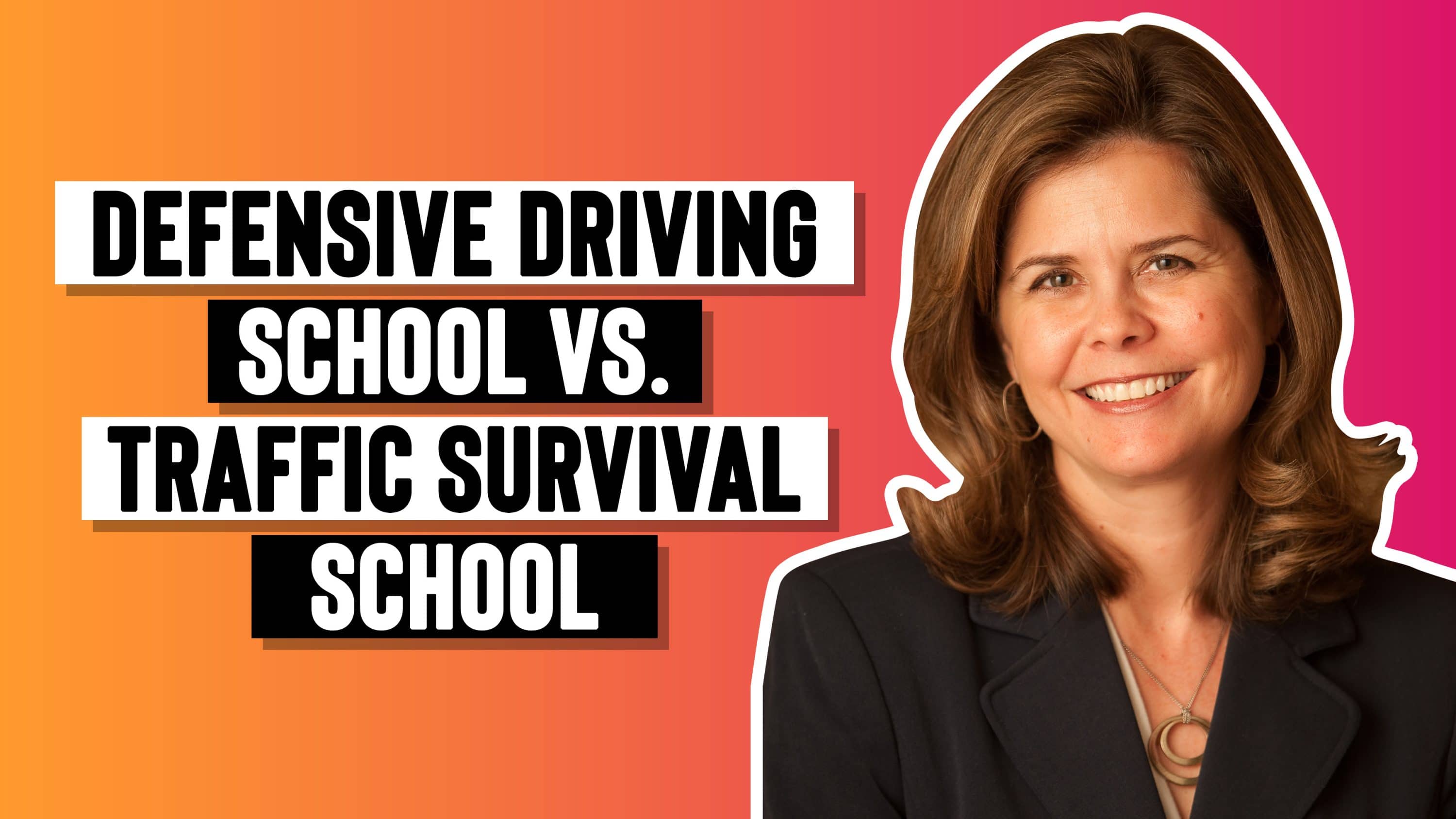
Defensive Driving School v. Traffic Survival School
Driving is a privilege, not a right. Therefore, driver’s licenses are only granted to those who are capable of responsible and safe driving. Any violations on the road can be penalized with the payment of a fine or the suspension of the driver’s license.
To safely bring a violator back on the road, authorities may require them to get a refresher course on safe and responsible driving. This can come in the form of Defensive Driving School or Traffic Survival School. While they seem similar, they are two different programs.
Defensive Driving School
Defensive Driving School, also called Defensive Driving Diversion, is a diversion program that a person can take after they are found responsible for a violation and are issued a ticket. The violator can opt to enroll in and complete the defensive driving program in order to get their ticket dismissed and prevent the violation from going into their driving record.
The diversion program is a 4-hour course that serves as an alternative to paying a fine for the violation and receiving demerit points on the driver’s license. If the violator completes their Defensive Driving Program, they can ask the court to dismiss the ticket.
Traffic Survival School
Traffic Survival School (TSS), on the other hand, can be classified as a punitive program that’s mandatory for a driver who has been held responsible for a traffic violation. It is a directive handed out by the Arizona Motor Vehicles Division (MVD) that requires the violator to attend and complete an 8-hour TSS class to avoid a point suspension on their driver’s license.
TSS comes into play when a court finds a driver guilty of a traffic offense. They report the violation to the MVD who then assesses points on the driver’s license and assigns mandatory Traffic Survival School. MVD mandates TSS for violations that involve:
- Running a stoplight
- Moving violations that result in death or serious injury
- Driving under the influence
- First moving violations for drivers below 18 years of age
- Drivers that accumulated 8 to 12 points on their license within 12 months
If the driver fails to attend Traffic Survival School, they are ineligible to enroll for 24 months, during which their license will be suspended.

